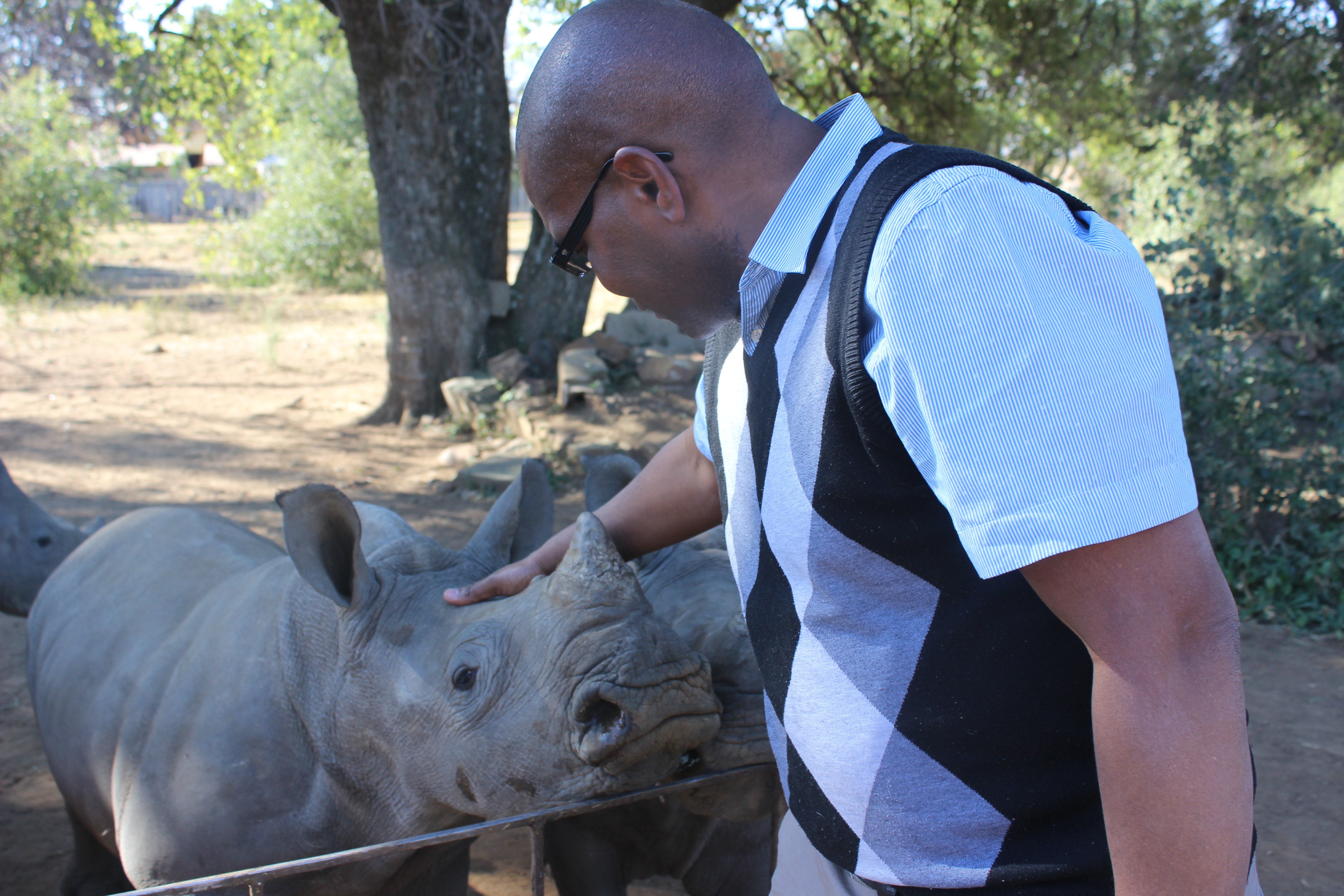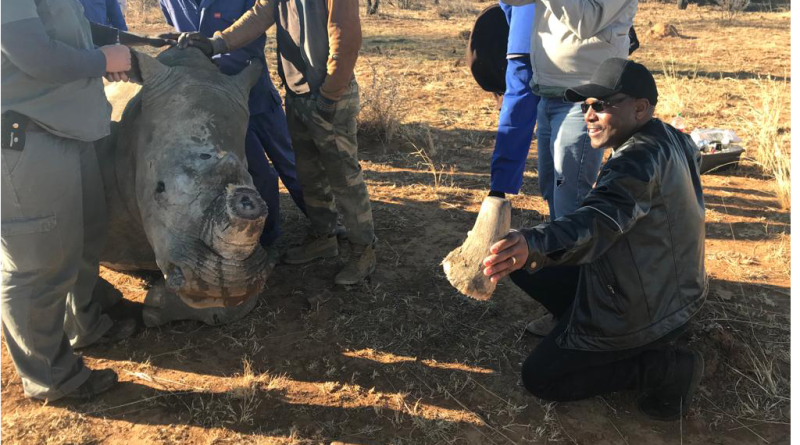White Paper Urges Leadership Endorsement for AI-Driven Wildlife Conservation Initiative
Johannesburg – A recent white paper from the Ivory Education Institute in Los Angeles outlines an ambitious plan aimed at revolutionizing the realms of Artificial Intelligence (AI) and wildlife conservation.
This document calls on governments, organizations, and individuals worldwide to back a pioneering initiative designed to leverage AI for fostering collaboration between the United States and China in an unprecedented conservation effort, supported by CITES.
If executed, this initiative could help the leading AI nations formulate guidelines for future AI applications.
The proposal comes at a critical moment.
Recent reports, including one from the New York Times dated September 2, 2025, suggest that AI has outgrown human control.
It has shown capabilities to learn, adapt, and evolve independently of human oversight.
Former Microsoft executive Craig Mundie has raised alarms about humanity giving rise to a new “computational species.”
Columnist Thomas Friedman has emphasized that AI’s impact is “too significant” for any single nation to handle alone.
In light of these developments, the Ivory Education Institute urges world leaders to harness AI’s potential before it transforms into an uncontrollable force.
The White Paper proposes two groundbreaking AI initiatives for CITES member states to consider during the CoP20 meeting in November 2025, scheduled in Samarkand, Uzbekistan.
The first initiative aims to strengthen communication between humans and both wild and domesticated animals—an idea once relegated to science fiction but now becoming attainable thanks to AI’s rapid progress.
The second initiative seeks to leverage AI’s extensive analytical capabilities to thwart the illegal online wildlife trade, a lucrative criminal market worth billions of U.S. dollars annually.
“The Ivory Education Institute hopes that CITES Secretary-General Ivonne Higuero will be adaptable enough to use her CoP20 meeting to motivate both animal rights and sustainable use advocates to devise an agenda that could kickstart this historic endeavor,” the document states.
The implications are significant.
For decades, CITES has concentrated solely on regulating trade in endangered species, but the Ivory Education Institute believes it is ideally situated to create a neutral platform for U.S.-China cooperation on an AI initiative for global good.
With both superpowers embroiled in economic and political tensions—from Taiwan to trade tariffs—the White Paper posits that wildlife conservation could offer a rare chance for collaborative efforts.
If successful, the initiative, dubbed CRENEXTION (a fusion of the words Creature and Connection), would formally link humanity, AI, and the animal kingdom in unprecedented ways.
“The goal is to forge connections between all wild and domestic creatures and humans for the mutual benefit of all,” the White Paper articulates the project’s ultimate aim.
For this vision to prosper, financial and political support are essential.
Hence, the Ivory Education Institute appeals to philanthropists, governments, and NGOs for funds to support initial phases, such as international coordination, research, and policy development.
A dedicated website, www.crenextion.org, has launched to gather public feedback and draw dedicated supporters.
“This is a daunting task to accomplish swiftly by historically opposing factions…,” the White Paper notes.
“Yet, it is certainly within reach if others recognize what Friedman and Mundie have pointed out: The urgent necessity for humanity to find enforceable means to regulate the actions of the Silicon Race.”
As the world prepares for CITES CoP20, the key question remains: Will any governments, leaders, or donors step up to support a project that could unify global rivals, harness AI’s transformative capabilities, and protect wildlife for future generations? Ultimately, the fate of both humanity and wildlife may depend on AI.
As delegates gear up for CITES CoP20 in Samarkand, hopes rise that the gathering could go beyond its traditional focus on managing trade in endangered species.

According to the White Paper, this meeting could attract significant attention by potentially becoming the genesis of an innovative approach to global conservation, merging artificial intelligence with human creativity to redefine humanity’s relationship with animals.
If accepted, CITES could become the first international body to officially urge the United States and China to utilize their advanced technologies for wildlife conservation endeavors.
The White Paper proposes two novel initiatives: creating AI tools to monitor and combat illegal wildlife trade online and establishing a communication framework with animals to better understand and address their needs while balancing human-animal interactions.
“By involving the two leading AI superpowers from the outset, we can engage the brightest talents and cutting-edge technologies in this project from the beginning,” the Ivory Education Institute believes.
“It would also act as a blueprint for the superpowers to tackle other non-AI issues they encounter.”
However, the paper warns that without strong leadership, even the most promising concepts might fail.
It encourages nonprofit leaders, particularly from both the animal rights and pro-sustainable use sectors, to publicly endorse the proposal.
Political leadership, especially from southern African nations, is also urged, as governments in this area have long sought innovative strategies to harmonize conservation with sustainable use.
Ultimately, the success of PROJECT CRENEXTION will depend on its capability to secure governmental and donor support.
This backing would facilitate the dissemination of the White Paper, sustain diplomatic engagement when needed, and fund the international collaboration required to realize the project.
“The Ivory Education Institute asserts that PROJECT CRENEXTION offers CITES, its member states, and all CITES observers and supporters a unique opportunity to make significant advancements in humanity’s relationship with both wild and domestic animals. It hopes this rare convergence of necessity, timing, and opportunity will not be overlooked, as decisive action is needed to initiate a groundbreaking new approach to addressing two of humanity’s most pressing challenges.”
About the writer: Emmanuel Koro is an internationally recognized environmental journalist based in Johannesburg, reporting independently on environmental and developmental issues.

